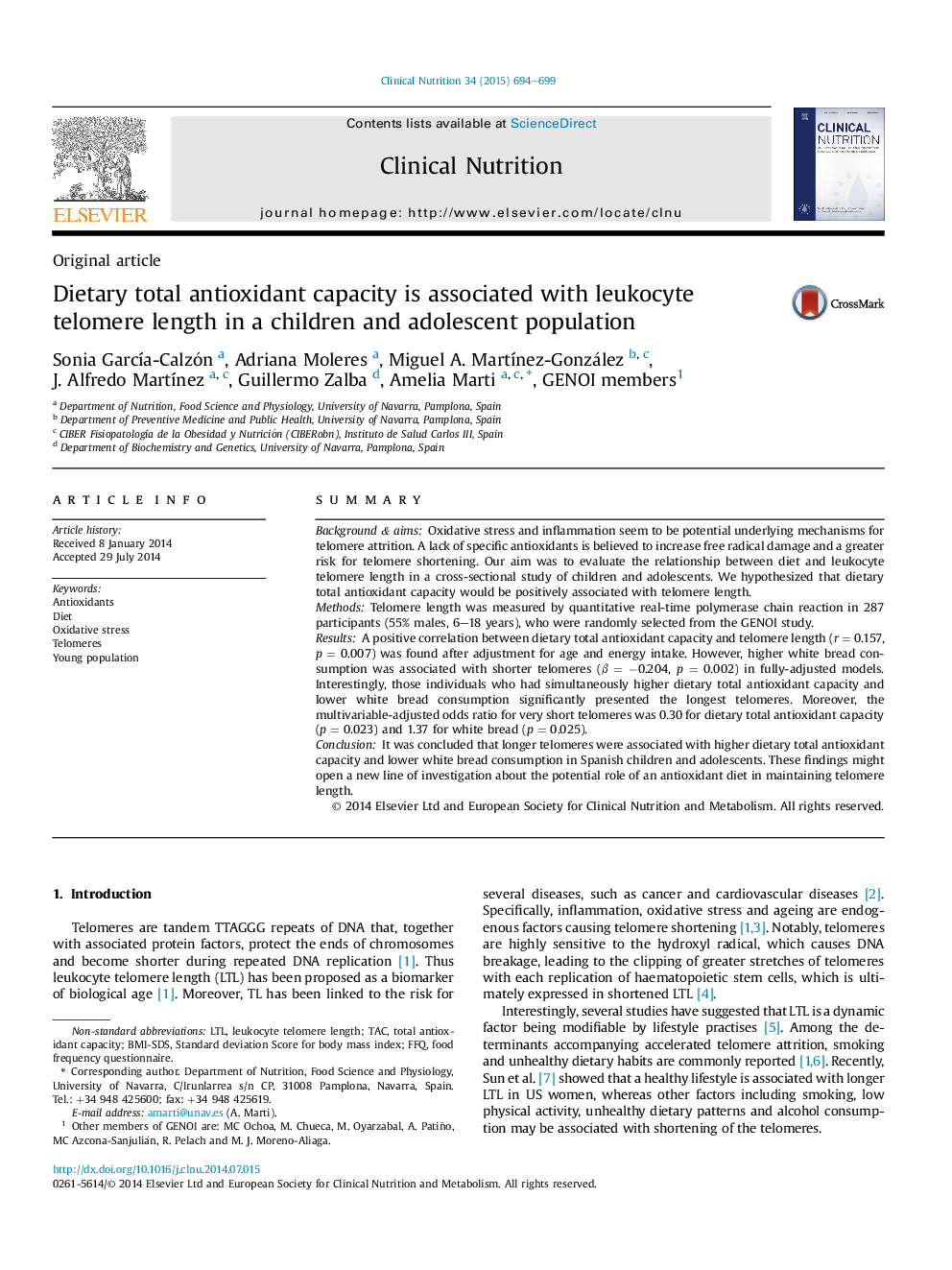| Article ID | Journal | Published Year | Pages | File Type |
|---|---|---|---|---|
| 5872292 | Clinical Nutrition | 2015 | 6 Pages |
SummaryBackground & aimsOxidative stress and inflammation seem to be potential underlying mechanisms for telomere attrition. A lack of specific antioxidants is believed to increase free radical damage and a greater risk for telomere shortening. Our aim was to evaluate the relationship between diet and leukocyte telomere length in a cross-sectional study of children and adolescents. We hypothesized that dietary total antioxidant capacity would be positively associated with telomere length.MethodsTelomere length was measured by quantitative real-time polymerase chain reaction in 287 participants (55% males, 6-18 years), who were randomly selected from the GENOI study.ResultsA positive correlation between dietary total antioxidant capacity and telomere length (r = 0.157, p = 0.007) was found after adjustment for age and energy intake. However, higher white bread consumption was associated with shorter telomeres (β = â0.204, p = 0.002) in fully-adjusted models. Interestingly, those individuals who had simultaneously higher dietary total antioxidant capacity and lower white bread consumption significantly presented the longest telomeres. Moreover, the multivariable-adjusted odds ratio for very short telomeres was 0.30 for dietary total antioxidant capacity (p = 0.023) and 1.37 for white bread (p = 0.025).ConclusionIt was concluded that longer telomeres were associated with higher dietary total antioxidant capacity and lower white bread consumption in Spanish children and adolescents. These findings might open a new line of investigation about the potential role of an antioxidant diet in maintaining telomere length.
